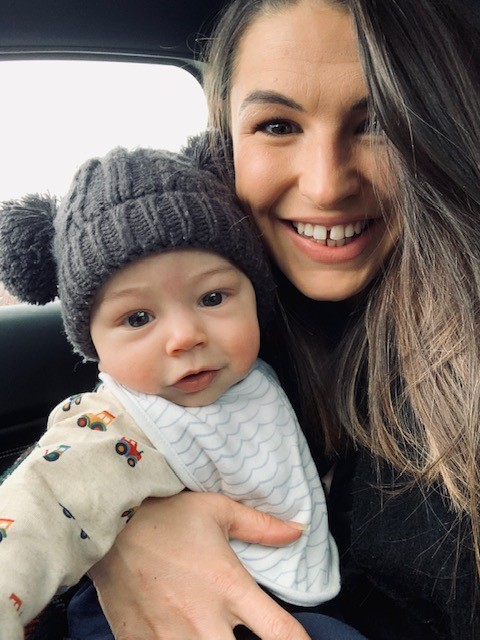Coronavirus: News from our partners – How the COVID-19 vaccine is empowering women during the pandemic
News from our partners NHS COVID-19 Vaccination Service
This International Women’s Day (today, Tuesday 8 March 2022) we are celebrating how the COVID-19 vaccine is empowering women during the pandemic.
As we recover from the worst of the pandemic it’s so important that we all receive the vaccine when it’s offered to us. Some women have expressed worries about having the vaccine due to concerns around fertility, pregnancy and breast feeding, but the NHS and the Royal College of Obstetricians and Gynaecologists strongly recommend COVID-19 vaccines in pregnancy and have stated there is no evidence to suggest COVID-19 vaccines affect fertility. Vaccination is the best way to protect against the known risks of COVID-19 in pregnancy for both women and babies.
Beth Emberton (32) from Shrewsbury reflected on her own experience of pregnancy, life with a baby during the pandemic, and how the COVID-19 vaccine has empowered her to do the things she wants with her new baby:-
“I became pregnant in January 2021, so just under a year since the pandemic had started and two months after the vaccine rollout had begun. Like many first-time pregnant mums, I was excited but also nervous about my pregnancy. At the time, the country was experiencing waves of Lockdowns and restrictions, I remember the rule of six being in place and only being allowed to meet people outside.
“I felt scared about getting COVID-19 and putting my baby at risk; this was heightened as I had already suffered several miscarriages. Most of the time I kept myself busy working. I left the house to meet family and friends outside for a walk and that was about it. I wanted to protect my baby so I started to research about the COVID-19 vaccine so I could make an informed decision on whether I should have the vaccine. I was particularly nervous about having another miscarriage.
“From my research, the evidence was very much in favour of pregnant women having the vaccine. Pregnant women who have COVID-19 are 2-3 times more likely to have their baby early than those without COVID-19, and are more likely to be admitted into intensive care than women at the same age who aren’t pregnant.
“I decided to have the vaccines, as I thought it would give the best protection to my baby and overwhelmingly, I wanted to do the best by him. Since having the COVID-19 vaccines I have felt more comfortable getting out and about whilst pregnant. Now I have my gorgeous baby boy, Lockie, I feel confident attending classes like my weekly Baby Sensory class with 12 other mums and their babies.
“My advice to any woman trying for a baby, pregnant or breastfeeding, would be to do your research but definitely go for it and get the vaccines. You can be confident you are protecting yourself and your baby and you feel happier getting out and about. Lockie is 5 months now and is a very healthy, happy baby. The COVID-19 vaccine has protected both of us, empowering me (and other women like me) to carry on doing the things we want to do during this pandemic.”

Beth Emberton and Lockie
The vaccine has been proven in clinical studies to be safe for women and their baby. Just like the flu jab, it’s recommended women take the COVID-19 vaccine to protect them and their baby.
The Joint Committee on Vaccination and Immunisation (JCVI) has advised that pregnant women should be offered COVID-19 vaccines. In the USA, around 90,000 pregnant women have already been vaccinated, mainly with Pfizer and Moderna vaccines, and no safety concerns have been identified.
Evidence on COVID-19 vaccines is being continuously reviewed by the World Health Organization and the regulatory bodies in the UK, USA, Canada and Europe.
For further information on the COVID-19 vaccines and details of your nearest clinic, please visit the Shropshire, Telford and Wrekin Integrated Care System website.
If you would like to discuss COVID-19 vaccination, please contact your midwife, doctor, or nurse.

